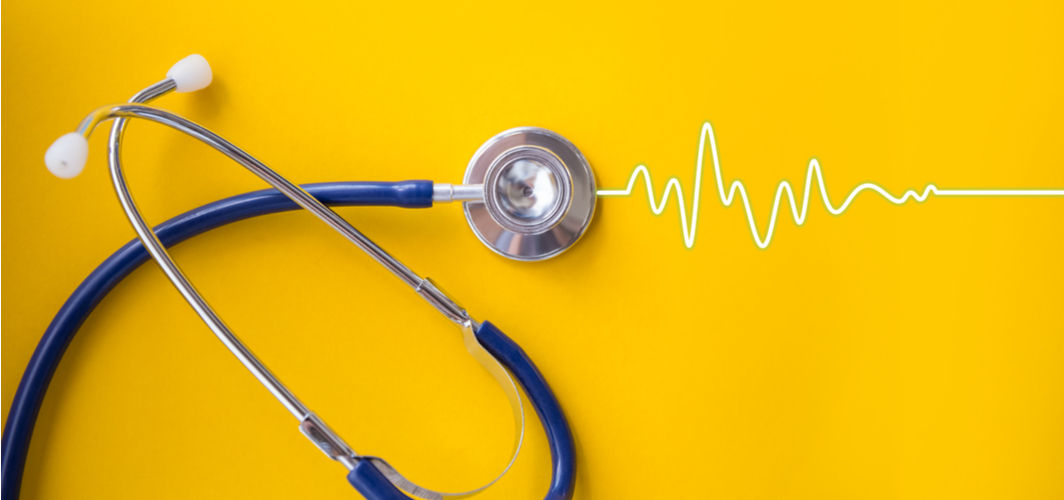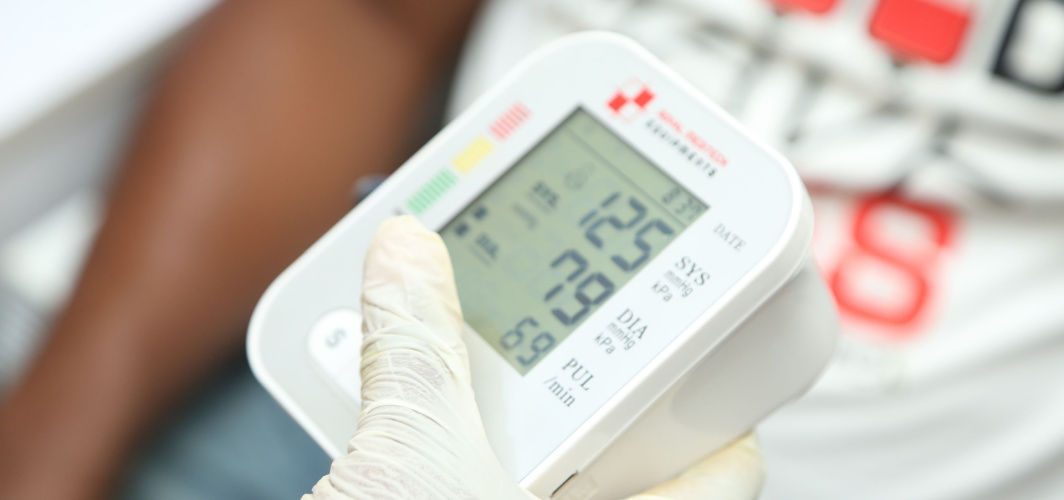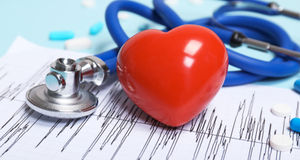Heart Conditions
Know About Echocardiogram: Echo Tests, Procedures, Preparation And Reports
8 min read
By Apollo 24|7, Published on - 14 June 2023, Updated on - 20 July 2023
Share this article
0
0 like

In modern medicine, where technology constantly pushes boundaries, there is one remarkable diagnostic tool that stands out for its ability to visualize the beating heart in exquisite detail: the echocardiogram. By harnessing the power of sound waves, echocardiography has revolutionized how we understand and diagnose cardiovascular conditions, allowing healthcare professionals to peer into the intricacies of the heart like never before.
What is an Echocardiogram Test?
An echocardiogram, also called an "echo," is a specialized scan examining the health of your heart. This test belongs to the category of ultrasound scans, wherein a small probe emits high-frequency sound waves that produce echoes upon reaching different areas of the body. The probe captures these echoes and transforms them into a dynamic image, which is displayed on a monitor throughout the scan.
These tests are highly versatile and can evaluate the heart's structure, including the chambers' size and thickness, the valves' condition, and any congenital abnormalities. The request for an echocardiogram may come from a cardiologist or doctor who suspects a potential issue with the patient's heart.
What is the Duration of an Echo Test?
The duration of an echo test typically ranges from 30 to 60 minutes. The exact time can vary depending on factors such as the complexity of the individual's heart condition, the type of echo test being performed, and the need for additional imaging or measurements.
The test is generally painless and non-invasive, allowing patients to resume their normal activities immediately after completion.
Who Should Go for an Echo Test?
An echo test is recommended for individuals with symptoms or risk factors such as:
- Chest pain
- Shortness of breath
- Heart murmurs
- High blood pressure
- Heart valve disease
- Congenital heart defects
- History of heart disease
It is beneficial for older adults as they may experience age-related changes in the heart, which if gone unnoticed may increase the risk of developing heart conditions.
Preparations Before an Echo Test
Before the echo test, consider the following preparations:
1. Clothing
Wear comfortable attire that allows easy access to your chest area. You may need to remove clothing from the waist and wear a gown during the test.
2. Medications
Inform your healthcare provider about your current medicines, as some may need to be adjusted or temporarily stopped before the test.
3. Fasting
Typically, fasting is not required for an echo test. However, if other procedures are scheduled along with it, your healthcare provider will provide specific fasting instructions.
4. Avoiding caffeine
It's advised to avoid caffeine-containing beverages a few hours before the test to prevent any impact on heart rate and blood pressure.
5. Other instructions
Follow any additional instructions your healthcare provider gives, such as avoiding smoking or strenuous physical activity before the test.
Following these preparations and discussing concerns with your healthcare provider can ensure a smooth and successful echo test experience.
Importance of Echo Tests: Assessing Heart Health
Echo tests serve multiple purposes in assessing heart health. They are primarily used to:
1. Evaluate heart structure
Echo tests provide detailed images of the heart's chambers, valves, and surrounding tissues, helping doctors identify structural abnormalities such as congenital heart defects, valve disorders, or cardiac tumours.
You can also evaluate your heart health with, Apollo's Heart Check Test
2. Assess heart function
These tests enable healthcare professionals to evaluate the heart's pumping ability and overall function. This aids in diagnosing conditions like heart failure, cardiomyopathy, or myocardial infarction (heart attack).
3. Detect abnormalities in blood flow
Echo tests identify disruptions in blood flow within the heart or major blood vessels. This helps diagnose conditions like blood clots, aortic aneurysms, or heart valve abnormalities.
Types of Echo Test
Different types of echo tests can be performed based on the specific diagnostic needs:
1. Transthoracic echocardiogram (TTE)
TTE is a common type of echocardiogram where a transducer with gel is placed on the chest to get clear images of the heart through the chest wall. The procedure is painless and takes about 30 minutes to complete.
2. Transesophageal echocardiogram (TEE)
In this test, a specialized transducer is inserted into the oesophagus (centre of the chest) to obtain clearer heart images. It is usually performed under sedation or anaesthesia and provides detailed views of the heart structures.
3. Stress echocardiogram
This test combines an echocardiogram with exercise or medication-induced stress to evaluate the heart's response to an increased workload. It helps diagnose conditions such as coronary artery disease or heart rhythm abnormalities.
Procedure: Steps Involved in an Echocardiogram
During an echocardiogram, the following steps are typically involved:
1. Preparation
Patients may be required to remove clothing from the upper body and wear a gown. Electrodes may also be attached to the chest to monitor the heart's electrical activity.
2. Transducer placement
A technician or sonographer applies a gel to the patient's chest to help transmit sound waves. They then use a transducer (a handheld device that emits and receives ultrasound waves) to capture images of the heart. The transducer is moved across different chest areas to obtain comprehensive views.
3. Image acquisition
As the transducer moves, sound waves bounce off the heart's structures. These sound waves are transformed into images, which are displayed on a monitor. The technician captures still images or records video loops to analyze the heart's activity and structure.
4. Doppler imaging
Doppler ultrasound may be used to assess blood flow. It allows the technician to measure the speed and direction of blood moving through the heart and blood vessels, revealing abnormalities such as valve leaks or stenosis.
5. Additional tests
In some cases, additional tests may be performed during the echocardiogram, such as contrast echocardiography, where a contrast agent is injected into the blood vessel to enhance image quality, or 3D echocardiography, which provides detailed three-dimensional views of the heart.
6. Completion
Once all necessary images have been obtained, the gel is wiped off, and the procedure is complete. Patients can resume normal activities immediately after the test.
What to Expect After the Test?
After an echo test (echocardiogram), here's what you can generally expect:
- Immediate results: The technician will provide initial findings, but a cardiologist will review and generate the final report.
- No downtime or restrictions: You can resume your normal activities right after the test. You can continue with regular eating, drinking, and medication as usual.
- Painless procedure: A gel will be applied to your chest, and images of your heart will be captured using sound waves.
- Follow-up appointment: Your doctor may schedule a follow-up to discuss the test results or plan any necessary treatment.
What Does the Echo Report Indicate?
The echo test report provides information about your heart, including:
- Size and structure: It reveals the size and shape of your heart.
- Function: It assesses how well your heart is working and pumping blood.
- Valve health: It detects any problems with the valves that control blood flow.
- Heart muscle condition: It evaluates the health of your heart muscles.
- Blood flow patterns: These show how blood moves through your heart.
- Structural abnormalities: It checks for any unusual or abnormal structure in your heart.
Treatments Based on Echocardiogram Findings
Echocardiograms play a crucial role in determining appropriate treatments for various heart conditions. Based on the findings, healthcare professionals may recommend the following:
1. Medications
In cases such as heart failure or high blood pressure, medicines may be prescribed to manage symptoms, improve heart function, or prevent complications.
2. Surgical interventions
Certain conditions, such as heart valve defects or congenital heart abnormalities, may require surgical repair or replacement of the affected valves or correction of structural defects.
3. Lifestyle modifications
Echocardiograms can identify factors contributing to heart disease, such as obesity or smoking. Healthcare providers may recommend lifestyle changes to improve heart health, including a healthy diet, regular exercise, and smoking cessation.
4. Cardiac procedures
Echocardiograms are tests that help doctors perform special procedures to treat heart problems without extensive surgeries. These procedures include fixing blocked heart arteries or replacing faulty heart valves. The echocardiogram provides essential information to the doctors, helping them do these procedures with precision.
5. Follow-up monitoring
Echocardiograms are frequently used to monitor treatments' effectiveness and track heart condition progress over time. Regular echocardiograms may be recommended to ensure the ongoing management of cardiac health.
Conclusion
Echocardiograms provide valuable insights into the structure and function of the heart, enabling healthcare professionals to diagnose heart conditions accurately. The non-invasive nature of echo tests and their comprehensive imaging capabilities allow for timely interventions and personalized treatment plans, ultimately improving patient outcomes. For more information, consult the cardiologists.
FAQs
Q. What does an echo test show?
An echo test is a medical test that uses sound waves to create images of the heart. It provides valuable information about the heart's structure, size, and function. It also helps detect abnormalities or heart problems, such as heart valve issues, heart muscle weakness, or congenital disabilities.
Q. What dietary restrictions should be followed before an echocardiogram?
Refrain from consuming anything except water for 4 hours before the test. Avoid intake of caffeine-containing substances (cola, chocolate, coffee, tea, medications) for 24 hours before the test. It is advisable not to smoke on the day of the test, as caffeine and nicotine can potentially affect the accuracy of the results.
Q. What is the expected recovery time after an echocardiogram?
Generally, the recovery period for an echocardiogram is minimal to none. Following a transesophageal echocardiogram, you may experience mild throat soreness for a few hours. However, you should be able to resume your regular activities the next day.
Q. Which is more effective, an ECG or an echocardiogram?
Echocardiograms provide highly accurate information about heart valve function and can detect conditions such as leaky or tight heart valves. Although an EKG can offer clues to many of these diagnoses, the echocardiogram is considered significantly more accurate for assessing heart structure and function.
Q. Is an echocardiogram a painful procedure?
A standard echocardiogram is a simple, painless, and safe procedure.
Medically reviewed by Dr Sonia Bhatt.
Heart Conditions
Consult Top Cardiologists
View AllLeave Comment
Recommended for you

Heart Conditions
Is Your Chest Feeling Tight And Heavy? These Could Be The Reasons
Tightness or heaviness in your chest can be a result of several issues such as injury, infection, anxiety, lung conditions, digestive issues and cardiovascular conditions. Such symptoms should be reported to the doctor immediately.

Heart Conditions
Heart Murmurs: Does It Indicate an Underlying Problem?
Murmurs may indicate an underlying problem in the heart but sometimes may also occur in a healthy heart.

Heart Conditions
Sudden Drop In Blood Pressure On Standing? Know What It Means
Postural hypotension is a condition in which your blood pressure suddenly drops when you stand after a period of sitting or lying. It may cause dizziness or fainting. Treatment may vary depending on the underlying cause.
Subscribe
Sign up for our free Health Library Daily Newsletter
Get doctor-approved health tips, news, and more.
Visual Stories

7 Tips to Manage Hypertension
Tap to continue exploring
Recommended for you

Heart Conditions
Is Your Chest Feeling Tight And Heavy? These Could Be The Reasons
Tightness or heaviness in your chest can be a result of several issues such as injury, infection, anxiety, lung conditions, digestive issues and cardiovascular conditions. Such symptoms should be reported to the doctor immediately.

Heart Conditions
Heart Murmurs: Does It Indicate an Underlying Problem?
Murmurs may indicate an underlying problem in the heart but sometimes may also occur in a healthy heart.

Heart Conditions
Sudden Drop In Blood Pressure On Standing? Know What It Means
Postural hypotension is a condition in which your blood pressure suddenly drops when you stand after a period of sitting or lying. It may cause dizziness or fainting. Treatment may vary depending on the underlying cause.
